#kunou totonou
Text
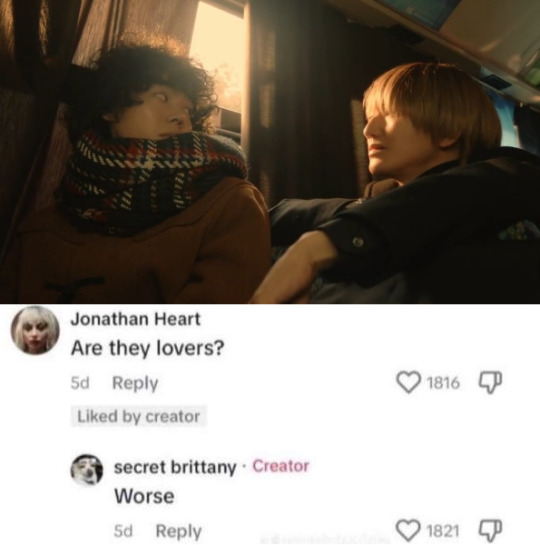




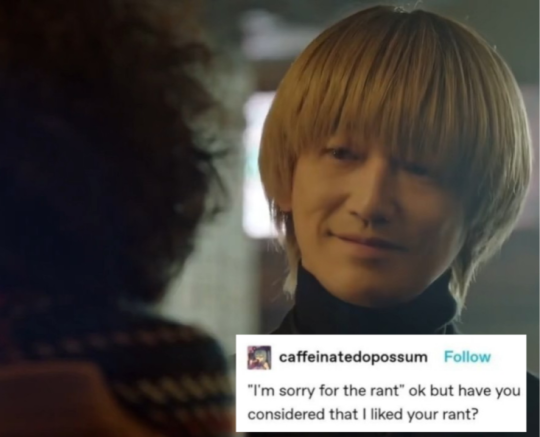




incorrect quotes of ミステリと言う勿れ by me ^-^
(part 2)
#ミステリと言う勿れ#don't say mystery#don't call it mystery#incorrect quotes#ミスナカ#garo inudo#kunou totonou#我路#久能#jdrama#ドラマ#hi maybe 1 or 2 people in the fandom that see this post#hope the images arent too blurry#mystery to iunakare
65 notes
·
View notes
Text

Totonou 💙
#i adore him. now that DCIM has an official translation ive finalllly read more than the first volume! im so hype i love this manga#fan art#mystery to iunakare#don't call it mystery#kunou totonou#tamura yumi#art wise i am really. not doin much these days so the occasional portrait may be all this blog will get
28 notes
·
View notes
Text




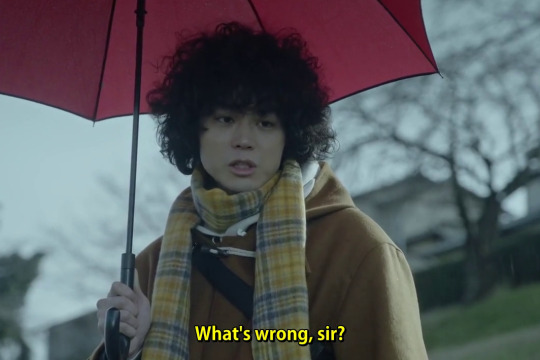
Has anyone watched this TV series? \(٥⁀▽⁀ )/
#mystery to iunakare#do not say mystery#japanese drama#jdorama#kunou totonou#quotes#suda masaki#artless#i really love series with eccentric male leads#adapted from manga
81 notes
·
View notes
Text
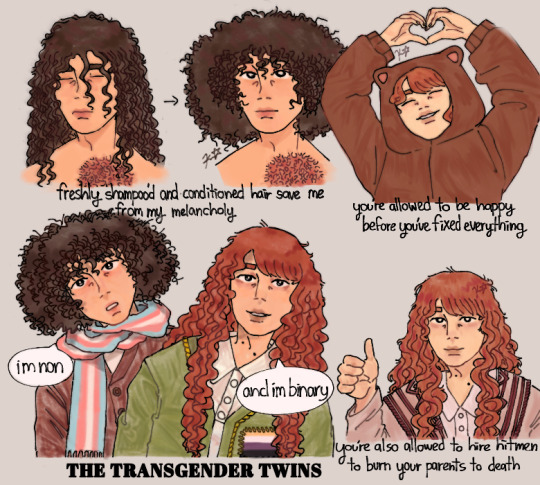

#wow im so normal about them haha [LOUD INCORRECT BUZZER]#ミスなか#ミステリと言う勿れ#mystery to iunakare fanart#dont call it mystery fanart#otoya inudo#haya inudo#raika#kunou totonou#garo inudo#artists on tumblr#art#noelle robbie's art
11 notes
·
View notes
Text
Don't Call It Mystery Volume 3-4: Family Affairs
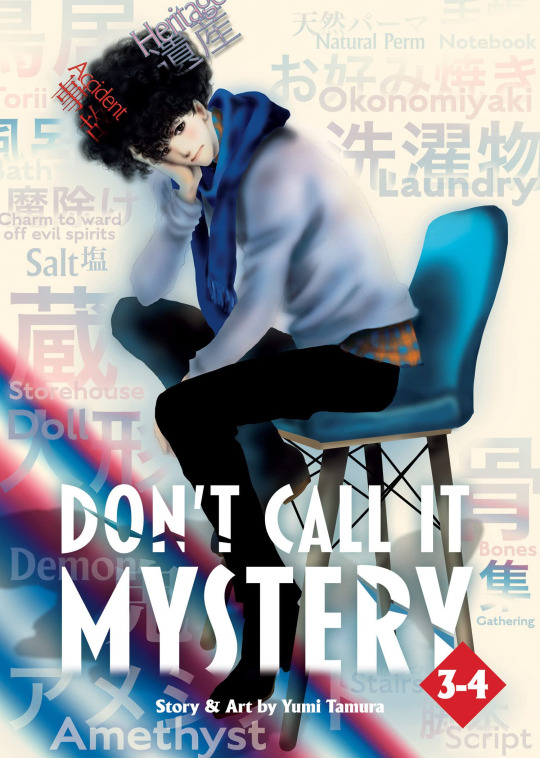
A little late to the party, but I recently read the latest volume of Don't Call It Mystery. Remaining such a unique concept, it continues to deliver on the promise of its name, and of Tamura's writing style as we get into full swing with the mystery of a family's fight for inheritance. Oddly enough, not a world of stuff I want to discuss, but more than a bit that I think can sway potential readers.
First and foremost, it's deliverance on the concept implied by the title. It's, simply put, wonderfully executed upon. In the very first panel where a mystery "starts", you are already clued into who the perpetrator is. There is no attempts to "mask" the mystery or mislead the reader as to who or what could be behind the scenes.
Instead, the focus remains on the character arcs of those involved. Casting a wide net, Tamura delves into the hearts of all the characters through the mystery. Rather than the mystery unraveling, it's the exterior of the cast as layer upon layer is peeled back to expose the deeper inner workings of each individual and how it relates to the mystery.
A girl frustrated with the death of her father and how her cousins treated it, the son that despised his absent mother, the daughter bearing the weight of family upon her shoulders. Each of the cast has their own past, their own troubles that exist and are expressed through their actions and personality, and it's beyond excellent. The characters are explained so succinctly yet explored so deeply it almost feels paradoxical.
Perhaps the best of all the points however, is how the characters continue to be a vehicle for the self-projection of Totonou. Not every moment is a callback to his character, but there are very much moments where he begins to speak and it's understood that he's overlapping his trauma and past with that of the characters involved. It's honestly such a clever way to create depth for his character while allowing the focus to remain on the rotating cast in front of him. Tamura drip feeds readers bits and pieces of his past through the characters that appear in front of him. How he views his father, the struggles that existed with his mother, his experience in school and with people. It's incredibly well written.
Speaking of well written, the mysteries themselves. They're not really mysteries but with how deeply they're written and expressed, surely a great deal of it goes over the heads of readers at times. Tamura writes these stories with 2,3, even 4 layers of information and references before you can catch onto the first. Thankfully, Totonou explains all these layers rather effectively, but nonetheless it creates truly impressive re-read potential to see just how these snippets of references and information relate to the characters surrounding them.
At the end of it all, Don't Call It Mystery is an incredibly therapeutic work, thanks to a pair of promises that Tamura makes with readers: that it's not a mystery, and that the characters will be thoughtfully explored and opened up through the process. It creates something devoid of the typical tension and weight of a mystery, and instead replaces it with the thoughtfulness of a passionate conversation, of which Totonou engages in many throughout this volume. An endlessly satisfying and oddly relaxing read, I'm quite looking forward to the next volume(s).
#don't call it mystery#mystery to iunakare#do not say mystery#ミステリと言う勿れ#kunou totonou#yumi tamura#mystery manga#drama manga#shoujo manga#josei manga#shojo manga#shoujo#shojo#shoujosei#shoujosei manga#shojosei#shojosei manga#manga reccs#manga recommendation#manga review#anime and manga#manga
6 notes
·
View notes
Text
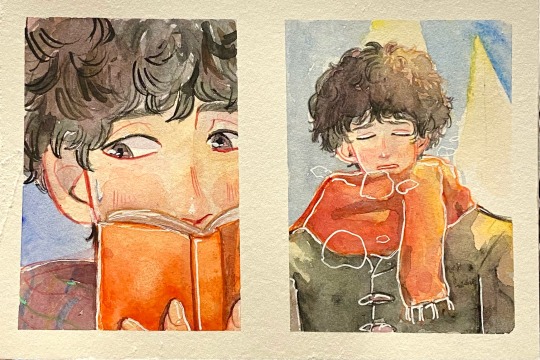
bad day for curry
75 notes
·
View notes
Text
I love shoujo manga. It's really written with a girls heart in mind.
One of the main reasons Sei stays back after avenging her family's murder is her love for Okita sensei. Does it seem childish? Does it seem like something a young girl who doesn't know consequences would do? The kind of questions that pop into one's mind when it comes to motives of young girls that isn't about "goals".
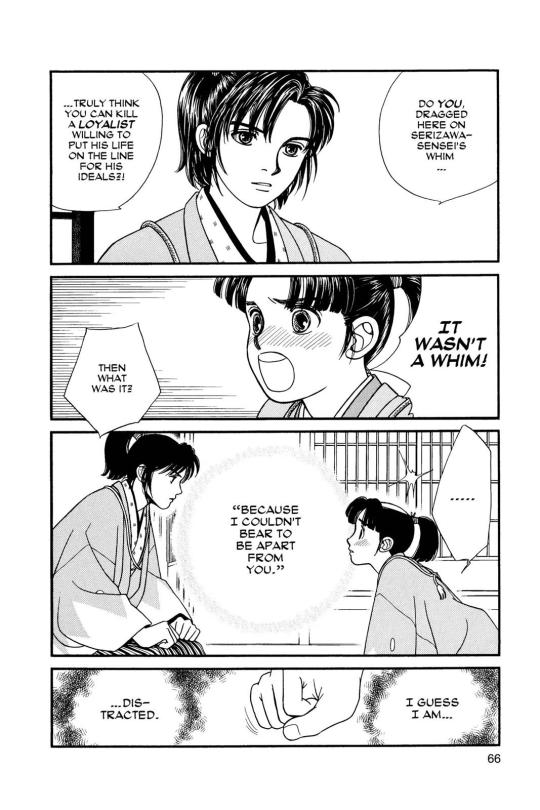
Say this was a shonen manga, nobody would question a boys' motive of joining the shinsengumi, all he needs to show is loyalty to their teacher, someone they are dedicated to follow and get better with sheer will power and gumption.
Thing is sei shows all that, she lost her family, is an orphan, and comes with a strong resolve of even shaving her head to play the part of a guy to join the mibu roshi. She puts her femininity on the line for a cause. Her admiration and love for Okita sensei isn't different because she's in love with him. It doesn't make her any less "noble". I like the early volumes show sei growing and understanding her way around the mibu roshi while in love with okita, if anything it makes her resolve strong and to understand why she wants to serve under him.
Ofcourse later the narrative is brought along the lines of how is this any different from Okita's dedication to Kondo san.
I just always feel how girls agency to fall in love is questioned as something immature of a goal to start with. Is it immature? We don't ask the same question to a boy, where we accept they are still too young and will come to experience things slowly but surely.
Sei's love for Okita is enough of a determination to stay after avenging her family. I like manga established that fact early on. For her it's go back to being a girl and get married. Finding a purpose in life can be something that revolves around love.
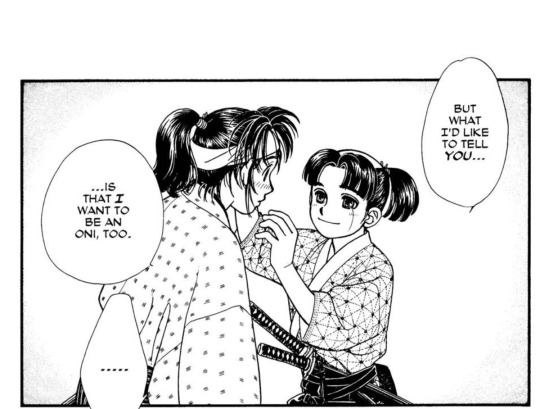
Reading Yumi Tamura's mystery to iunakare, something that totonou states abt feminism is also abt liberating men and it got me into thinking abt kaze hikaru.
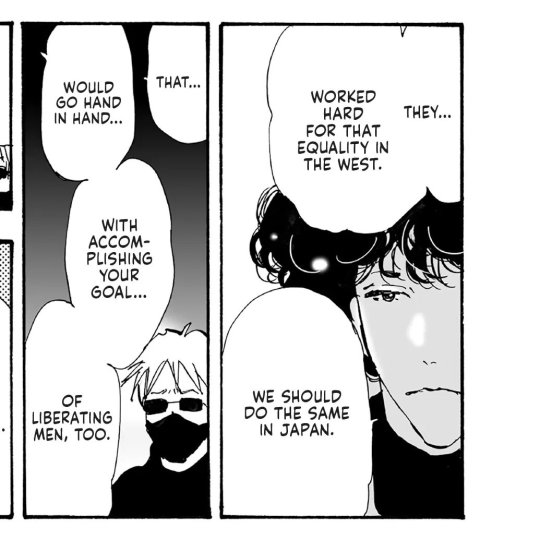
Okita slowly let's himself experience this emotion called romantic love, it doesn't make him weak, it made him strong and he is liberating himself from society's expectations of patriarchy as he let's kamiya be by his side as his protector and to rely on her. He doesn't have to think that he needs to provide for her as a man then only he is capable of loving her, or that it means he lost his resolve in his swordsmanship. He sees her as an equal to compete!!!!
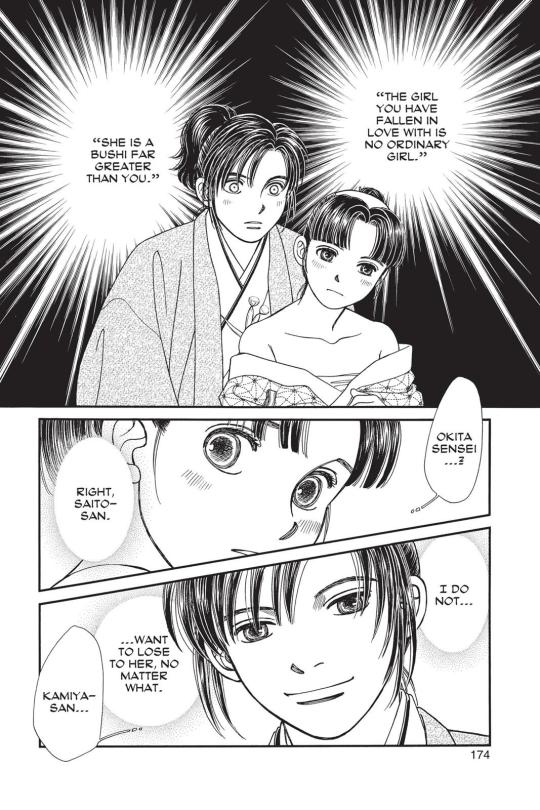
#for a bakumatsu manga abt pride and honour of a man kaze hikaru provides good insight with gender bends and misogyny
#the purpose of gender bends like even in ranma 1/2 as ranma comes to love being a girl
#doesnt mean its perfect manga
#i wish i could take away the pen from taeko watanabe and give it to yumi tamura at times lol
#places where Watanabe herself gives into the misogyny of the times
#kunou totonou i love you
7 notes
·
View notes
Text
[Eng] Special Conversation between Yumi Tamura & Masaki Suda on Mystery to Iunakare
Published in the February 2022 issue of Flowers manga magazine (月刊flowers) released on Dec. 27, 2021.
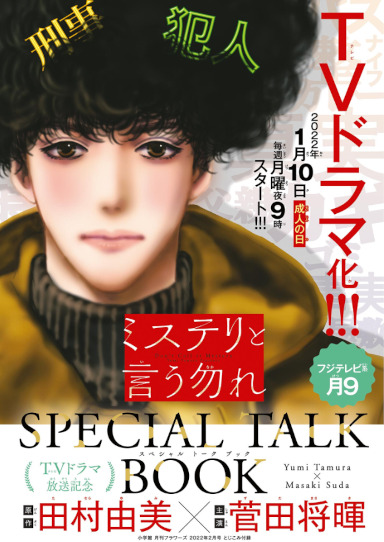
In commemoration of the [Mystery to Iunakare] TV drama adaptation, we held a special conversation between the original author, Yumi Tamura, and the lead actor, Masaki Suda. The conversation ranged from each of their thoughts on “Totonou Kunou” to discussing the highlights of the TV drama, their interactions before the filming, and their favorite manga works! Their conversation reveals at length the appeal of Mystery to Iunakara (abbreviated as Mystery).
~~~~~~~~~~~~~~
Notes:
Spoiler Alert: The conversation touches on contents in volumes 4 and 5 of the manga, some of which I believe starts being revealed on episode 5 of the TV drama (airing Feb. 7, 2022). Though no major plot spoilers are revealed (probably not fully understandable without context anyway), character names, certain events that occur, themes, and suggestions of mood/tone of certain parts are conveyed. If you want to remain completely “in the dark” about volumes 4 and 5 (episode 5 and onward in the drama) until you actually experience them, then do not proceed. If you don’t mind knowing some things without context, then feel free to read on. However, in either case, you may still want to skip over Caption 4 (see Note # 5), as I think it may kind of spoil a surprise later on leading up to volume 9 if you haven't read up to that point.
The terms “original work” and “manga” are used interchangeably in this fan translated version when referencing Mystery to Iunakare manga.
Stating the obvious that this is a fan (amateur) translation for the purposes of practice and spreading awareness of Yumi Tamura and her work. Copyright belongs to Yumi Tamura and Shogakukan. I do not claim accuracy on these translations, and in fact, may revise them from time to time. Corrections are welcomed.
If you’re able, please give support and let the publisher (and manga author) know that you enjoy this manga, this kind of special content, and would like more in the future by purchasing the original publication. Digital version is available to purchase on Book Walker Japan (https://bookwalker.jp/de41a49e7d-4bfd-4a82-a1d4-1536484849b2/). If the link doesn’t work, try copying & pasting “月刊flowers 2022年2月号” in the search bar, even on other sites where you can purchase similar Japanese publications (that accept your country’s currency). Note that you will need to register an account on Book Walker, either a Japan or Global account, to make purchases on the site.
I purposely excluded the images from this interview but included the image captions, except the bios for Tamura and Suda. They are labeled with caption numbers and appear as small, green italic text throughout. So, if you would like the full experience, not to mention a peak at other great works included in the magazine, do purchase the original. 😊
/end Notes
~~~~~~~~~~~~~~
TV Drama Adaptation Confirmed…
------First of all, Ms. Tamura, can you please share what your honest feelings were when you received the announcement about the drama adaption?
Yumi Tamura (Tamura): I was so surprised, I wondered if it was even real. I thought to myself, “Mr. Masaki Suda!? It can’t be… Really?” But when I tried to imagine it, he was so perfectly suited for the role. In the first story, Totonou’s character is a little different [from now] because I originally intended the story to be a one-shot, but from the second story onwards his emotions gradually emerge, and parts of him that are a bit cute and careless begin to show. So, when I imagined Mr. Suda in those various forms of Totonou, I just thought, “Wow, so wonderful, he’s perfect for it!”
Masaki Suda (Suda): No, no, you flatter me.
Tamura: When I first received the proposal for the drama from Fuji TV, I was deeply moved by how much importance they placed on the original work. Due to the nature of live-action dramas, some parts will of course be different from the original, but I felt that they created the character of Totonou with great care. Moreover, with Mr. Suda playing the role, there was a sense of assurance like Totonou would be properly represented over there. This is the first time I’ve received a TV drama adaptation, and I am, with all of my heart, so grateful for this wonderful project.
Suda: I, too, am thankful to hear you say that.
Tamura: Actually, when this work was first published, a manga artist and an editor I knew told me that they would like to have Mr. Suda as Totonou if this was ever to be made into a live-action drama.
Suda: Was this before talks of the drama?
Tamura: That’s correct. It was during the very early stages. At the time, I couldn’t even imagine that something like a drama was possible. But after we actually talked, I was able to easily visualize Mr. Suda’s Totonou in my mind. But his Totonou is ridiculously cool! (laughs)
------Mr. Suda, what were your thoughts when the offer came?
Suda: This was during my so-called period of continuous manga live-action adaptations… which I’m really grateful for, but my manager and I talked at that time about whether I should hold off on manga-based works and go after more original works [written specifically for the screen]. But then a few days after that conversation, my manager came to me and said, “So, there’s this project that’s based off a good manga…” (laughs). As I was thinking to myself, “Here it comes,” I replied to him, “Well, I’ll at least read it for now, but didn’t you just say I should stop doing this stuff?” Then I started reading the manga, which was Mystery… and then I was all for it like, “Let’s do it!” (laughs). I pretty much made the decision on the spot after reading the first story.
Everyone: (Laughs)
Suda: I already knew about Mystery to begin with, because there were talks of it among the manga fan community. So, I’m sure I would’ve read it eventually even without the TV drama news… When I actually read the manga, I felt that I absolutely had to do this project.
[Caption 1] From the first story, which instantly captivated Mr. Suda. Totonou’s words are “piercing” and even become hot topics on social media.
Tamura: Thank you. It makes me very happy that you thought so. I’m honored.
“Reverse” Data Collecting before Filming
------It seems that Mr. Suda had a talk with Ms. Tamura before the shooting started, is that right?
Suda: That’s right. The opportunity for us to do it appeared, so I asked on my side for a meeting with Ms. Tamura. After all, wouldn’t anyone be curious to know what kind of person is Ms. Yumi Tamura, the one creating this kind of work? I wondered if there’s really any way one could draw this kind of work just from imagination. Without a great deal of life experiences and various perspectives, one probably wouldn’t be able to draw up something like this. So, I wanted to know what was going on inside Ms. Tamura’s mind.
Tamura: No, no, it’s not like that…
Suda: I’m naturally the type of person who wants to meet and talk with the author of the original story when I get to perform it. I can see what the author values from these conversations, and I like to hear directly from them about their intentions. When I read Mystery in particular, I could feel something immensely that resembled a “wish” [someone’s wish]. It’s not like I’m trying to say what’s right or wrong in this world, but somehow, I could totally agree with the future that Totonou hoped for beyond what was happening in the world he was living in. That's why I wanted to meet and talk with Ms. Tamura more.
------What did you two talk about?
Suda: Let’s see, what did we talk about?
Tamura: I feel like I got so nervous that I couldn’t really talk.
Suda: Wait, wait, wait, but you actually talked a lot! You were talking so much, Ms. Tamura! (laughs)
Tamura: (Laughs) Did that happen? Well, I got anxious and rambled on then... We talked for about an hour, didn’t we?
Suda: Probably around there. It was so much fun. I’m glad to know that there are people like Ms. Tamura, who question and turn over many different things in their mind. I’ve always believed that everyone should think more about the “why” behind all kinds of things. It doesn’t only have to be about the offensive stuff. Contemplating over things by itself is interesting, isn’t it? For example, I wondered why the nice hotels only have toilets with lots of buttons.
Everyone: (laughs)
Suda: I don’t know which button is for closing the lid, flushing, or activating the bidet (laughs). I think we’ve become too smart for our own good [e.g., advanced in our technology,] that the opposite happens and we inadvertently become simple-minded. Even that kind of conversation is fun to have. And the more we talk it through, the more we can see the process that led to the thought behind something. I had many conversations like that with Ms. Tamura. And they were really interesting because I got to hear a lot about Tamura’s writing method directly from her mouth, like she’d say, “I did it this way because I was wondering why such and such is the way it is….” What impressed me in particular was the way that she was kind of saying, “With Mystery, unlike my previous works, I’m just throwing things out there that I’ve been thinking about, that’s it.” And that switched on my light bulb. “That is Totonou,” was my exact thought. That’s why I’m glad I got to meet Ms. Tamura, or else I wouldn’t have been able to bring Totonou to real life.
------It was an interesting and very precious time to prepare for the role then.
Suda: Yes, it was. But thankfully, I’ve been able meet her a lot since filming started because Ms. Tamura has often come on set.
Tamura: I really wanted to see the filming (laughs).
------Does it make you nervous to have the original author on set?
Suda: Of course I’m nervous, but I’m also grateful. It’s like there’s nothing more reassuring [about an adaptation than having the original author’s support]. The general public tends to perceive it as the live-action versus the original work, but I think that’s such a shame.
Tamura: I agree.
Suda: Isn’t the original and the live-action about the same work? Of course, it goes without saying that the original takes precedence, but I want to bring the distance between the the two closer in any way possible. So, if the author can come on set and speak with us directly, then that would be the fastest way to close the gap.
Tamura: I'm really touched that you thought of facing this work in that way. I could feel that sentiment in all your scenes. As the author, it made me really happy. But, before I started visiting the set, despite being excited and hopeful, I still had worries about how Totonou would turn out…
Suda: Well, no doubt about that. I was worried too. I’m still worried.
Everyone: (laughs)
Tamura: Each person holds a considerably different impression of Totonou as a character. It’s going to change depending probably on each person’s own problems, worries, and position in everyday life. That’s why I didn’t know what kind of character Totonou would become if an actor were to play him in real life. I wondered what it would look like if his lines were actually spoken in real life.
------How was it when you actually saw Mr. Suda’s performance on set?
Tamura: I thought, “Ah, so that’s what Totonou would be like if he were real.”
Suda: I’m so relieved to hear you say that!
Tamura: It wasn’t like I had a correct version in mind [for real-life Totonou], or that I doubted Mr. Suda. So, the feeling [of when I saw Mr. Suda as Totonou] was like: “This is it, the correct answer!” Then I was honestly able to think, “Oh yeah, that’s what Totonou would be like in real life.”
Suda: Glad to hear that.
Tamura: The first time I saw him perform was the episode when Totonou is hospitalized, and when I saw Mr. Suda dressed as Totonou speaking quietly, calmy, and steadily, I thought: “I see, Totonou is like this,” and from then I could only see Mr. Suda as Totonou (laughs). So, I was delighted. And I kept thinking “yes, that's it.” Even the director said that only Mr. Suda could play this role.
Dynamic Performances by a Star-Studded Cast
------When you visited the filming site, what did you find impressive?
Tamura: I only saw a portion of the scene, so I don’t know how it turned out in the end, but the interaction between Totonou and Leica was awfully cute!
Suda: Yes, Leica!
Tamura: I got to see so much of Totonou’s adorable side! What’s with that atmosphere [between the two of you]?
Suda: Personally, I have worked with Mugi (Mugi Kadowaki), who plays Leica, several times and she’s someone I have the utmost faith in. No matter the situation, we’re always there for each other. That’s why I was able to push my acting with confidence while having a lot of fun. Also, the beauty of Leica that Mugi creates… it’s kind of like she’s standing right there as an illusion.
Tamura: An illusion… yes, even in the manga, readers often wondered if Leica was there only because Totonou imagined he was seeing her even though she may not be real. So, “illusion” certainly fits Leica. Ms. Kadowaki’s graceful and unwavering presence was truly enchanting…! Speaking of enchanting, Furomitsu is also amazing. The exchange between Ms. Sairi Ito, who plays Furomitsu, and Mr. Suda that I got to see overwhelmed with power. In the drama, they made [Furomitsu’s character] a woman who is trying her best to live with courage in the face of her adverse surroundings. I had many opportunities to meet Ms. Ito, and she was cute, strong, and spirited; I came to like her very much. Other famous people have also appeared and played opposite Mr. Suda (Totonou). I can’t reveal their names yet, but they were all amazing… It was like watching them go at it in a one-on-one battle.
Suda: In any case, it’s an extremely star-studded cast. It’s like a different drama every episode because each one is basically about one scenario and the cast continues to change except for me.
Tamura: I’m excited to see how it will turn out.
Suda: I think one of the reasons why we’ve attracted such an all-star cast is because the roles are just that fascinating. As with Totonou, the characters that come out of each and every episode [of the original work] are interesting and intriguing to any actor. Maybe it’s because the original work was written in a theatrical style to begin with, but many of the actors who appear in the TV drama are actually theater inclined. So, I think it would be really interesting to see if this work is adapted for the stage someday.
Favorite Episode Arc from the Original Work
------Mr. Suda, what is your favorite episode arc from the original work?
Suda: I guess it has to be the Kaeru [frog] one (in volume 5 of the manga). The story was interesting and a heavy one, among other things. How do I put it… it’s just the most poignant. In terms of entertainment, I really liked the Hiroshima episode. There was slapstick comedy, action, mystery solving, etc. Still, Roku’s story struck a chord with me the most. Did you have some kind of literary motif in mind when you wrote it? This was the first story where the theme of “child abuse” was put forth in a big way, right?
Tamura: It’s not like I had a motif in mind, but it’s something that I’ve been thinking about for a long time. In Japan, it’s not easy to separate children from their abusive parents as quickly as in the West, so that must mean there’s still many more children who are suffering. However, in reality, I think it’s less likely that an abused child would truly want to be apart from their parents.
Suda: Yes, that seems to be the case.
Tamura: So I remember drawing that while doubting myself over whether a child would actually choose to summon an angel, who promises to kill [the child’s parents] for them.
Suda: It seems to be a story on what it would be like if one were in that position and told such a thing. I felt the reality in that part of the story when I read it. As Ms. Tamura said earlier, it’s really cruel to make a child choose, and Ms. Tamura’s determination to illustrate this kind of situation is incredible.
Tamura: The experience will become a painful one for the child later on.
Suda: I really got that kind of feeling from the manga. Because before lighting the fire, that child, who I couldn’t tell whether was a girl or boy, was standing there looking like a bean sprout without a single trace of life on their face. That scene was really grim.
[Caption 2] What is the sad secret hidden in the arson incident? The episode of the fiery angel that made Mr. Suda say, “It’s the most poignant.” (From Volume 5 of the manga)
Tamura: It really is a difficult subject. But I figured that incorporating such themes might be possible if they were in the form of an encounter with Totonou.
Suda: So it doesn’t sound patronizing and such.
Tamura: Yes, that’s right. The same is true with the issue of bullying; trying to draw a proper picture of the issue itself may very well be difficult. However, I think there are some issues that can be portrayed with the involvement of someone like Totonou. However, I’m trying to be careful, as I don’t think Totonou could stand something horrible like seeing people get killed one after another right in front of his eyes. Thus, I wanted to focus the story around figuring things out to prevent that from happening as much as possible.
Suda: Good point!
Tamura: On the other hand, I don’t care what occurs in Garo’s part of the story. I’m creating his part with the thought that a different genre is okay.
Suda: Garo’s lines in that one part are so interesting when he said, “I have no intention of interfering in other people’s crimes.”
Tamura: I’m hoping that there will be a time when Totonou and Garo can work together again.
Suda: I’m with you on that. But in Mystery, there’s fascination in seeing the three different perspectives—Totonou’s, Garo’s, and Leica’s.
Tamura: I’m glad to hear that. However, creating a story is challenging, and I struggle with it each time. Mr. Suda must have had a hard time as well playing the role, so I hoped there were some fun parts for you.
Suda: No, no, it was fun. It was fun but definitely challenging. I had to go to the hospital in the middle of the day because I had so many mouth ulcers that I couldn’t talk. That was the first time ever, you know, that I had to stop filming on set because of mouth ulcers (laughs).
Tamura: Really?! It’s tough having mouth ulcers in a role that requires so much talking…!
[Caption 3] Garo Inudo, who has a mysterious connection with Totonou. He is one of the few individuals that Totonou would like to be friends with. (From Volume 9 of the manga)
Suda: It sure is. I’ve played a fair number of characters who have talked a lot, but those times were actually when the characters were in quite a heated state. Roles where there’s a lot of talking often call for energetic style of speaking after all, so playing someone like Totonou had its challenges. In the manga, Totonou talks without using much emotion, right? That’s what’s so fascinating and what I love about him, but I think that kind of expression only has an effect on the audience precisely because it’s in a manga. In a TV drama, if the character is actually played by a real person and there’s no emotion, then the character loses their humanity and becomes just a “character.” Of course, it’s important to perform the character of Totonou well and emulate his expressions, but more than that, I wanted to convey to the audience what’s happening in the story that Ms. Tamura created and what Totonou is seeing. So, I consciously played the role keeping emotions in check but letting them show every now and then.
Tamura: I’m really happy you thought about it to that extent. Thank you so much.
Suda: Oh, but I thought it was such a discovery. It was an eye-opening experience to learn two kinds of conversations between people: those that employ emotions and those that do not.
Tamura: That’s so true. It would be nice if we could have more discussions, or on-the-spot conversations without rejecting or attacking each other’s character. I wonder if we can start that kind of training from childhood…
Suda: Right. Love isn’t all about venting out our emotions.
Next Goal is…?
------Please share with us your hope for the future of the manga.
Tamura: I’ve gained a love for the detectives while observing the filming, so I’m kind of thinking to continue Aoto’s story, and next time Furomitsu’s. And of course, Ikemoto’s.
Suda: I bought the manga as a gift and gave it to friends and to children of friends a few times, so...
Tamura: Really? Thank you very much!
Suda: I contributed to the sales (laughs).
------The manga has surpassed 13 million copies…
Suda: It’s gone that far? So awesome! But really, my friend’s kid, to whom I gifted the manga, has asked if Furomitsu can come back already. Sounds like they’re looking forward to Furomitsu’s parts.
[Caption 4] Aoto, whose daughter was kidnapped. It may be related to the wrongful conviction case from 8 years ago… (from volume 9 of the manga)
Tamura: I’ll do it for sure (laughs). The fact that the work I drew, which I thought was going to be a one-shot of just one volume, has grown this big is thanks to everyone’s support, and that makes me so happy. Also, more than anything, I think Totonou himself is happy to have Mr. Suda play his role.
Suda: I’m soooo happy to hear you say that!
Tamura: I’m really grateful to you as well. There may be some fans of the original work who are worried about the adaptation, but I’m sure they will enjoy watching [the TV drama], and for those who are fans of Mr. Suda and don’t know the original work, I’m sure they will come to love it too. I haven’t seen the final edited version yet either, so I’m looking forward to the day it airs…
Suda: I saw the first episode. I feel relieved. It was good!
Tamura: Okay, then I can’t wait for it!
Suda: I know the show hasn’t even started and I’m already saying this, but I want to play Totonou again. I haven’t actually done a series before, so I’m hoping this could become my first one. Well, I wonder if I can do it, I’m cutting it close as I approach 40 years old.
Everyone: (Laughs)
<END>
Yumi Tamura ✕ Masaki Suda: Bonus Manga Chat between the Two Manga Lovers
Suda: What was the first manga you ever read in your life?
Tamura: The first real manga I read… was Moretsu Ataro by Fujio Akatsuka. When I was in kindergarten, I had a minor surgery and was hospitalized for a week, and at that time my father bought me a shonen [boy’s] manga magazine. I don’t remember what else happened, and I don’t know if it was the only one I liked or what, but I was able to endure the pain of my stitches being removed while reading Moretsu Ataro (laughs).
Suda: So it was enough to make the pain go away? (Laughs) I’ll read it.
Tamura: After that, when I was in the third grade of elementary school, I came across shojo [girl’s] manga and started drawing them myself. The series of works by Moto Hagio are wonderful… In particular, The Heart of Thomas grasped a deep part of my heart. Then when I was in high school, I encountered the Hamidashikko series by Jun Mihara, which is like the bible to me… The power of the words in that work is unbelievable, and I don’t know how many times I cried from them… they pierce the heart a lot. Even now they come back to me in various instances.
Suda: That has my interest now. Thank you for sharing that!
Tamura: Do you like manga as well, Mr. Suda?
Suda: Manga was my only recreation. Whenever I went on location to film, I would buy manga for the number of days I’d stay or frequent manga cafes during in between times. I was thinking that Mystery could be good teaching material in schools. It would be great if everyone reads it together in moral education classes or something. I would do that if I was a teacher. As my mentor, my sixth-grade homeroom teacher really loved manga, and I had wanted to become a teacher too because of him. He left manga in our classroom and called them his bible, and that’s when I came to love manga. Our classroom bookshelf had manga works like Parasyte and Ushio and Tora, and now that I think about it, that environment probably influenced my attraction to works with strong themes.
Tamura: Excellent choice of works, teacher!
Suda: Excellent, right? I think it would be great if Mystery was mixed in with that bookshelf. Or rather, it should be!
#yumi tamura#tamura yumi#masaki suda#mystery to iunakare#do not say mystery#dont call it mystery#flowers magazine#totonou kunou#j drama#Fujio Akatsuka#Moretsu Ataro#Moto Hagio#The Heart of Thomas#Jun Mihara#Hamidashikko#Parasyte#Ushio and Tora
66 notes
·
View notes
Photo
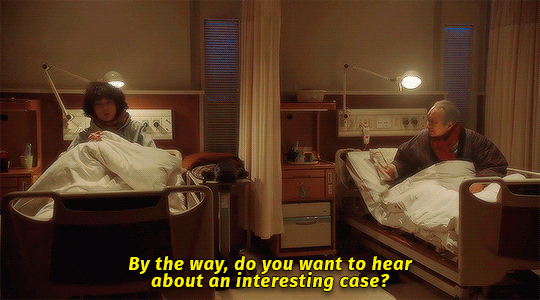
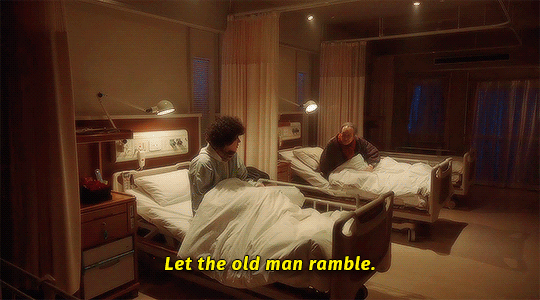
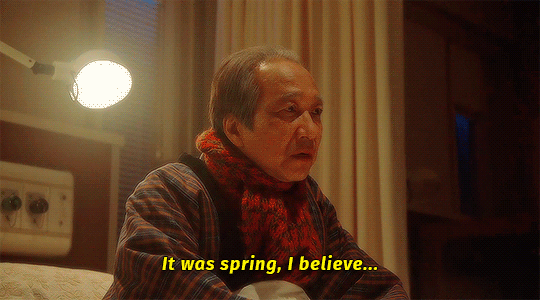
ミステリと言う勿れ- You have to listen to my story. I have to let it out of my system.
#hahaha#can't say no to elderly#they operate in different logic#poor totonou kun#ミステリと言う勿れ#Mystery to Iu Nakare#mystery to iu nakare ep5#Sakurada Dori#don't call it mystery#suda masaki#character: kunou totono#kohinata fumiyo#character: ushida goro
42 notes
·
View notes
Text
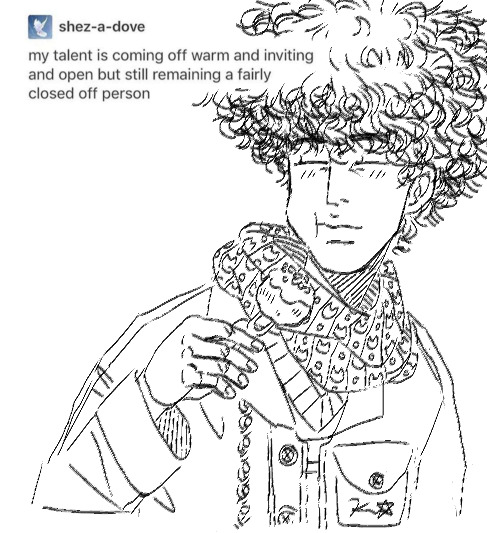
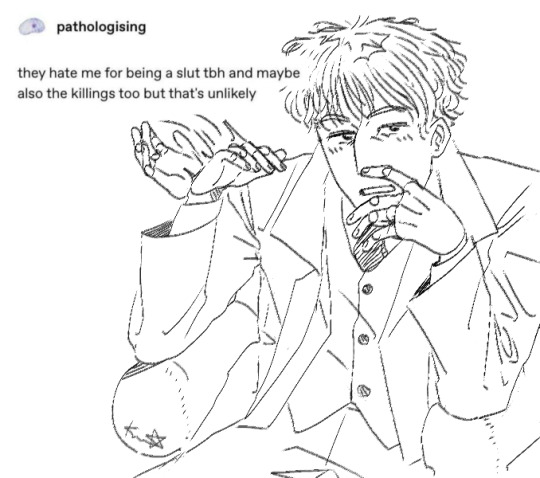
lazy doodles of toto n garo 👍
#mi art#if anyone sees this and has any drawing ideas for raika please hmu . ive been wanting to draw her but can't seem to think of anything#don't call it mystery fanart#ミステリーと言う勿れ#uhhh what other tags...#garo inudo#kunou totonou
9 notes
·
View notes
Text
"MAGADEMY AWARD 2021" Announces Winning Characters of Its Five Categories
The official website for Magademy Award 2021, the Japanese manga industry's first award to honor characters held by Toppan Printing's digital bookstore BookLive, announced the winners for its five categories - Best Leading Actor, Best Leading Actress, Best Supporting Actor, Best Supporting Actress, and Jury Special Award.
Online voting for the nomination, which could be made for any manga character in any genres that appeared in the book form (print and digital) in Japan from December 1, 2020, to November 20, 2021, was conducted from December 9, 2021 to January 5, 2022. Then, each nominated character was scored from a total of seven unique perspectives, including "charisma," "witty remark," "courageous/inspiring," and "match with the modern age." The winning characters were selected after a thorough discussion on their charm, not just a score evaluation.
Only the Jury Special Award was decided after each member of the jury presented his or her favorite character to each other. In memory of Guts from Berserk, who lived strongly, and in memory of the manga's author, Kentaro Miura, who passed away suddenly last year, the award was presented to Guts.
"Best Leading Actor" winner:
Totonou Kunou (Do Not Say Mystery)
Nominees:
Eren Yeager (Attack on Titan)
Sakamichi Onoda (Yowamushi Pedal)
Totonou Kunou (Do Not Say Mystery)
Mutta Nanba (Space Brothers)
Bojji (Ranking of Kings)
"Best Leading Actress" winner:
Yona (Yona of The Dawn):
Nominees:
Hayame Katsuragi (Promise Cinderella)
Yoi Takiguchi (In The Clear Moonlight Dusk)
Frieren (Frieren: Beyond Journey's End)
Mao Mao (The Apothecary Diaries: The Palace Cloister Mystery-Solving Notebook of Mao Mao)
"Best Supporting Actor" winner:
Manjiro Sano (Tokyo Revengers):
Nominees:
Toru Amuro (The Detective Conan)
Kage (Ranking of Kings)
Manjiro Sano (Tokyo Revengers)
Levi Ackerman (Attack on Titan)
"Best Supporting Actress" winner:
Shinobu Wakamiya (Chihayafuru):
Nominees:
Yoko Sato (The Fable)
Yua Takahashi (Tomorrow I Will Be Someone's Girlfriend)
Jury Special Award winner:
Guts (Berserk):
"Magademy Award 2021" trophy:
Source: BookLive press release
© MAGADEMY AWARD All rights reserved.
By: Mikikazu Komatsu
0 notes
Text
ren sagara n kunou themed fanart <3


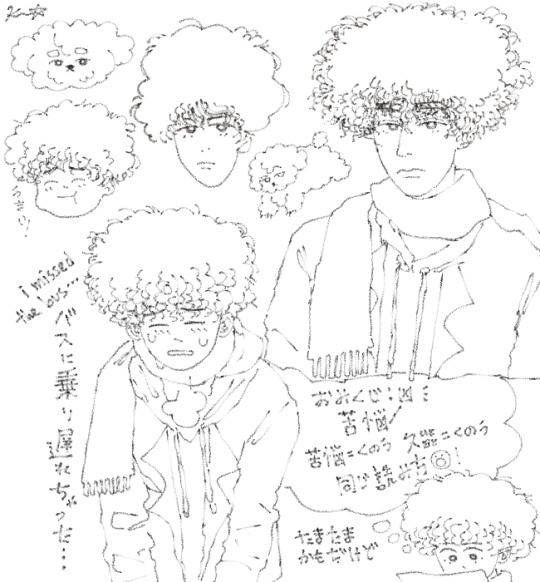
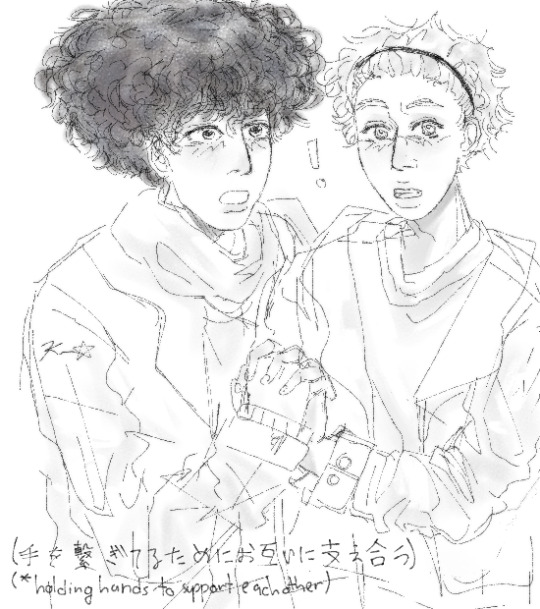
#my art#ミステリと言う勿れ#dont call it mystery fanart#don't say mystery fanart#totonou kunou#sagara ren#jdrama#mystery to iunakare#you can tell which ones are inspired from the manga and which ones are from the jdrama#also hi again !! to the few people obssesed with this show as well#ren and kunou the queerplatonic duo ever#dont call it mystery#noelle robbie's art
21 notes
·
View notes
Text
Don't Call It Mystery Omnibus Volume 1: The Mystery That Isn't Mysterious

I'll cut to the chase (and completely ignore my terribly bad subtitle for this post), I think this is definitely a story that a lot of people will be interested in. Of course, there's reasons for that, but if you find the concept of a mystery series intriguing, you're bound to enjoy this unique rendition of it from the expert mangaka Yumi Tamura. So, allow me to walk you why, in a spoiler free fashion (spoilers: it's because it's so good you shouldn't read spoilers until you've read it).
So, Yumi Tamura isn't exactly a household name in English, especially in this day and age. But I can pretty comfortably say, within the Shoujosei community, they're very high up there as an accomplished and successful mangaka. They've several highly regarded series underneath their belt that includes the focus of this post, alongside Basara and 7 Seeds. Basara was published in English a long time ago, but has long since been out of print, so in this current day and age this is the only accessible Yumi Tamura manga, so people should absolutely be getting on it while they can.
Anyways, why is Don't Call It Mystery good? Well, I'll start with the art. I'll say it flat out, the paneling isn't something out of this world. It's not, and hoping for a dialogue heavy mystery manga like this to have some creative flow or anything is probably asking a little much. The art on the other hand? It's got that classic styling to it. The very old school and sort of wispy and sketchy approach that has characters with very unique and intriguing proportions. It's a style that's undoubtedly aged, but has done so like fine wine.

So what about the story then? In short, nothing less than incredibly interesting and highly engaging. Being so dialogue heavy and rather slow paced, it's very easy to find a story boring or disinteresting, but the format of Don't Call It Mystery keeps those feelings at bay. The whole idea is to follow our lead character, Totonou Kunou, as he gets roped into mystery after mystery, and how those cases come to a head. You could say it's like Sherlock Holmes, if he was arrested on suspect of murder, or was directly involved/subject to the crimes he was attempting to solve. And I think that's what makes it so interesting.
It flips mystery on its head
Rather than from the outside looking in, trying to put the pieces together to form the how, Don't Call It Mystery places the readers and Totonou in the hot seat, as we break apart the mystery from the inside out. If you want, you have the answers to each of the crimes and curiosities very early on, but that's not the focus. Rather than the how of the mystery, we look at the why alongside Totonou. And I think that's such a fun spin on the concept. You get placed in front of the murderers and sociopaths and social rejects, and are encouraged to piece together their worlds alongside Totonou.
And because of that, the focus shifts from the world to the characters. It's quite literally a world of difference, and I find it to be a really great idea. It turns solving a mystery into exploring one. You probe the minds of each characters as Totonou slips into guidance counselor mode (even though he's just a university student), and the conversations that arise from it speak to a desire to dig deeper into the existence of the person behind the conversation. Why is a serial killer doing what they're doing, what does a person think of death or killing, how do they view themselves and the world around them. It's a host of questions an curiosities that strikes at the core of each person and their insecurities.
Now, speaking about characters, you can't have a good character-centric story without good characters. And there's plenty of them through this first omnibus. More than anything, a lot of them come off playful, which I found interesting. You wouldn't think a tense murder plot would have room for flippant behavior, but it's there, and it works. It cuts the tension of the interactions very comfortably, and makes for a more relaxing read than you might expect. The levity really helps shift readers away from the gravity of violence and killing, and towards the curiosity and interest in exploring another person.
But let's talk specifics, specifically Totonou-kun. I really enjoy their character, for a lot of reasons. Namely, their perceived passivity of the world. It's as a way to pass time, or out of boredom, hardly ever is the mystery something that Totonou has express interest in. It's a bold strategy, but nonetheless one that certainly pays off. When faced with his interest in curry, or making it to an art exhibit on time, Totonou's disinterest in the dire situations and challenges he's faced with makes for an exciting approach. More than that though, it's the perfect personality to use as your vehicle for the exploration of the people around them. Without much a reason to, the unbiased prodding of those unfortunate enough to end up around him produces incredibly interesting results.
But I think I've rambled on long enough at this point. You want a mystery? This has got it. You want interesting theories and ideas? This has it. You want a refreshing take on the genre? It's right in front of you. Don't Call It Mystery checks so many boxes in regards to its experience that there's certainly far more people out there that would enjoy it than there is people that wouldn't. So, what's the hold up on it then? Grab a volume and get started on reading this oddly obvious mystery manga.
#don't call it mystery#do not say mystery#mystery to iunakare#totono#mystery manga#josei#shoujosei#shojosei#josei manga#shojosei manga#shoujosei manga#anime and manga#manga#manga review#manga recommendation#manga reccs
14 notes
·
View notes
Text
Totonou Kunou & Yumi Tamura's 2021 Magademy Award Acceptance Speech
Fan translation of Totonou and Tamura's comments on winning the inaugural Magademy Award for Best Lead Male Actor (fictional character), as posted on the Flowers twitter account on March 17, 2022.
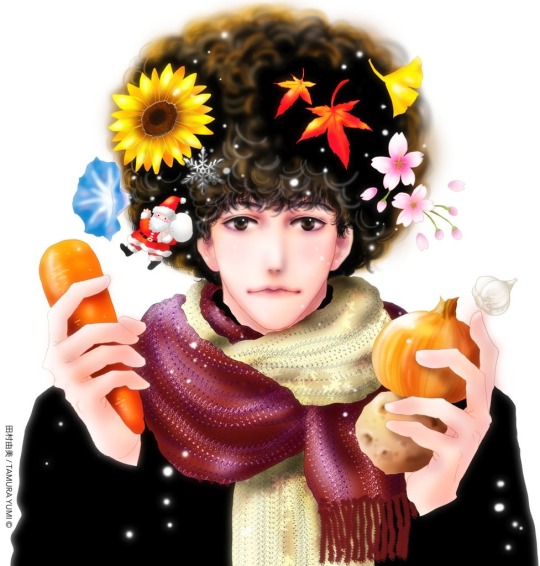
Totonou Kunou's Acceptance Speech:
Hello, my name is Totonou Kunou.
I’m sorry I couldn’t come see you all today.
I’m completely surprised to suddenly receive the Magademy Award for Best Actor* in a Leading Role. Thank you.
However, although people say I play the lead role, it only happens to appear that way because the story is depicted from my point of view; if you look at it from Garo's point of view, Garo is the lead, and if looking from Leica's point of view, Leica is the lead. Naturally, everyone plays the lead role in their own life, but at the same time, everyone plays a supporting role in someone else's.
A single incident occurring in the world can be largely different [to each person] depending on where one crops [the frame of view] and from where they look at it. And what each of us sees I'm sure is at odds with one another. It's troublesome. And always complicated. So I've always thought that I need to pay attention. I want to bear in mind that other people besides myself are living, feeling, and thinking too.
Also, people may not be saying "actor" [male actor] or "actress" [female actor] anymore [i.e., moving away from gender-specific titles]. But in this situation, thank you for awarding me the first Best Actor.
May I still speak? I would like to send my gratitude to everyone who nominated and selected me for this award. I hope everyone had lots of fun. If you feel tired, please get some rest. If possible, take a break before you get tired.
Thank you very much.
I appreciate your continued support.
- Totonou Kunou
Yumi Tamura's Acceptance Speech:
I am truly grateful to receive this prestigious, first-ever Best Actor in a Leading Role Award. I never thought our Totonou would win this, and I'm shaking with surprise and excitement over it.
This story began as a one-shot reading. With a lot of support, it became a serialized work, a live-action TV series starring Masaki Suda, and in the same way, it received an award, which marked the beginning of that award's history. Totonou, as with this entire work, has been nurtured by all of you.
Totonou has shown me a new world. He is making me happy. I want to make him happy.
May we gather up each happiness in this world. I'm wishing for that. As I think carefully about what happiness is.
I appreciate your continued support. Thank you so much for today.
- Yumi Tamura
----------------------------------
*T/N: The original award title specifies male actor (男優), as Magademy has a separate category for female actor, so I modeled the Japanese award titles after the traditional English ones of "Best Actor" and "Best Actress" like those of the Academy Awards (Oscars).
13 notes
·
View notes
Photo
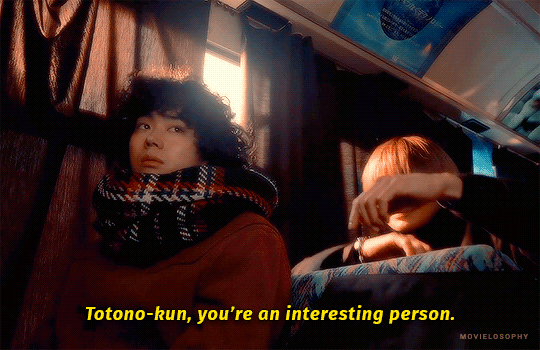
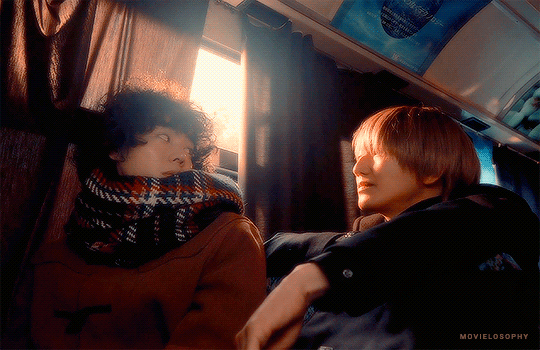
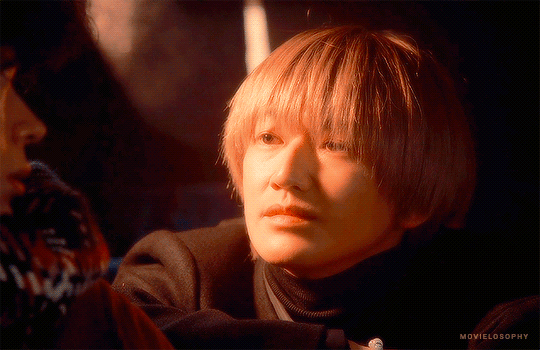
ミステリと言う勿れ - 😐
#i think totonou kun looks cute#while kumada sho looks like serial killer#hahhaha#sorry#this looks makes eita younger#Mystery to Iu Nakare#don't call it mystery#ミステリと言う勿れ#suda masaki#character: kunou totono#nagayama eita#eita#character: kumada sho
51 notes
·
View notes
Text
"MAGADEMY AWARD 2021" Announces 17 Nominated Characters for Its Four Categories
The official website for Magademy Award 2021, the Japanese manga industry's first award to honor characters held by Toppan Printing's digital bookstore BookLive, announced 17 nominees for its four categories - Best Leading Actor, Best Leading Actress, Best Supporting Actor, and Best Supporting Actress.
Online voting for the nomination was conducted from December 9, 2021 to January 5, 2022. Nominations could be made for any manga character in any genres that appeared in the book form (print and digital) in Japan from December 1, 2020, to November 20, 2021. Voting was allowed every day (per character per day) during the nomination period.
"Best Leading Actor" nominees:
Eren Yeager (Attack on Titan)
Sakamichi Onoda (Yowamushi Pedal)
Totonou Kunou (Do Not Say Mystery)
Mutta Nanba (Space Brothers)
Bojji (Ranking of Kings)
"Best Leading Actress" nominees:
Hayame Katsuragi (Promise Cinderella)
Yoi Takiguchi (In The Clear Moonlight Dusk)
Frieren (Frieren: Beyond Journey's End)
Mao Mao (The Apothecary Diaries: The Palace Cloister Mystery-Solving Notebook of Mao Mao)
Yona (Yona of The Dawn)
"Best Supporting Actor" nominees:
Toru Amuro (The Detective Conan)
Kage (Ranking of Kings)
Manjiro Sano (Tokyo Revengers)
Levi Ackerman (Attack on Titan)
"Best Supporting Actress" nominees:
Yoko Sato (The Fable)
Yua Takahashi (Tomorrow I Will Be Someone's Girlfriend)
Shinobu Wakamiya (Chihayafuru)
Along with the special judge Kendo Kobayashi, a Japanese comedian who has been known for his love of manga, the judges will discuss and decide on one winner for each of the four categories and the Judge's Special Award. The winners will be announced on March 16, 2022.
Source: BookLive press release
© MAGADEMY AWARD All rights reserved.
By: Mikikazu Komatsu
0 notes